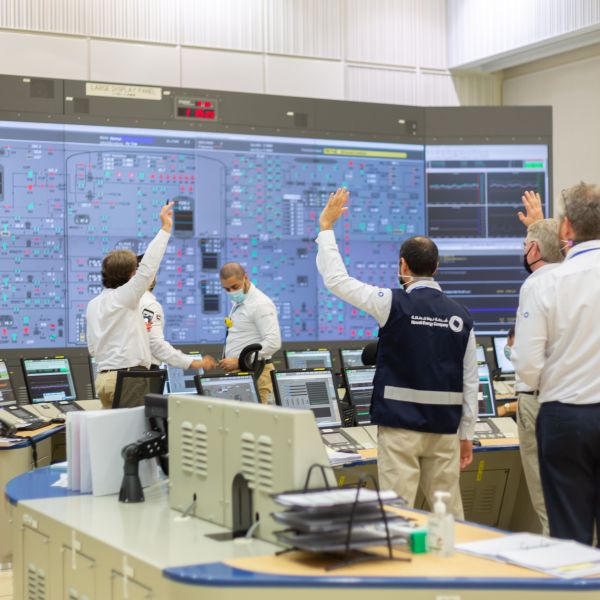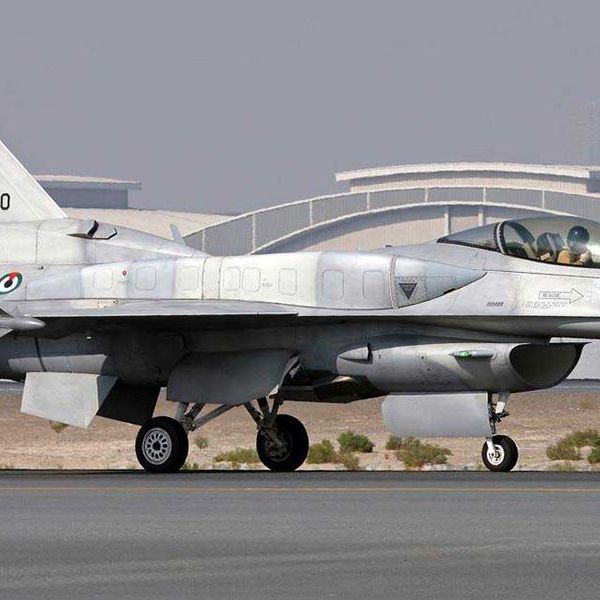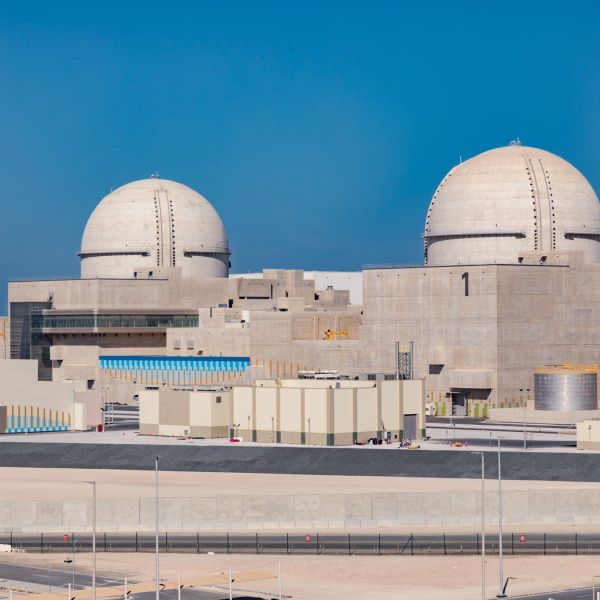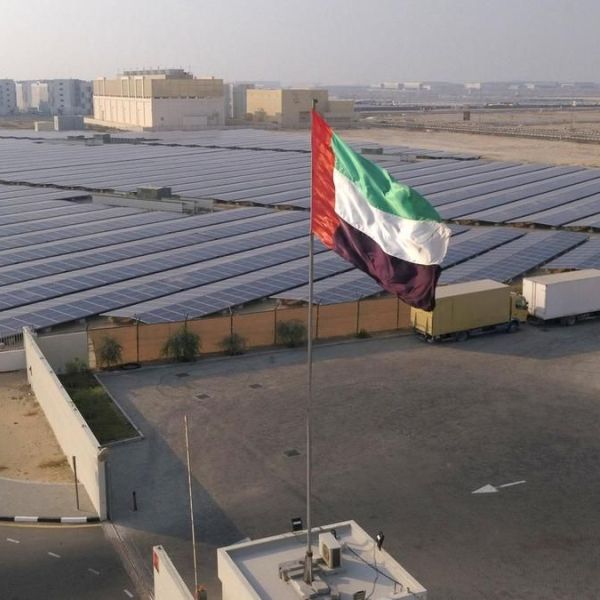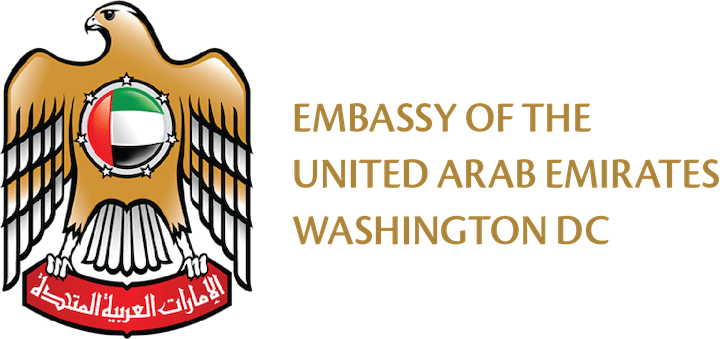The UAE is committed to working with the international community to keep the world safe from global proliferation threats and to fully support the goals of the Treaty on the Non-Proliferation of Nuclear Weapons (NPT).
With the signing of the “gold standard” US-UAE 123 Agreement in 2009, the UAE voluntarily committed to the highest standards of nonproliferation and forwent domestic uranium enrichment and reprocessing. The UAE’s peaceful nuclear energy development is a global model of safety and transparency.
The principles, commitments and strategies outlined in the UAE’s civilian nuclear energy policy demonstrate the UAE’s desires for a peaceful and transparent program. The UAE’s actions align with its longstanding support for the NPT, and supports a stable Middle East region completely free of weapons of mass destruction.
The UAE became a party to the Non-Proliferation Treaty in 1996. The UAE also is a member of the International Atomic Energy Agency (IAEA) and cooperates with the Missile Technology Control Regime. The UAE is a partner nation on the Global Initiative to Combat Nuclear Terrorism.
In support of regional peace and stability, the UAE fully supports and enforces United Nations Security Council resolutions barring shipment of sensitive materials and technologies to Iran.
Additional Non-Proliferation Initiatives
- The UAE worked with the US Department of Energy to implement the Megaports Initiative, a cooperative effort aimed at deterring terrorists from using the world's seaports to ship illicit materials; detecting nuclear or radioactive materials if shipped via sea cargo; and interdicting harmful materials so they cannot be used by terrorists.
- The UAE is a signatory to the Proliferation Security Initiative (PSI), which aims to stop shipments of weapons of mass destruction, their delivery systems and related materials worldwide.
- The UAE participates in the US Container Security Initiative (CSI), a security regime that includes a team of US Customs and Border Protection officers permanently stationed inside Dubai's ports, where they work closely with Dubai Customs to screen containers destined for the United States.
- Ports operated by Dubai Ports World participate in the Secure Freight Initiative, a US Department of Homeland Security pilot program to test the methods used to screen US-bound cargo for radiation.
- Dubai Ports World has been certified as a partner in the Customs-Trade Partnership Against Terrorism, a government-business cargo security initiative led by the US Department of Homeland Security’s Customs and Border Protection component.
- The US Department of State, through its Export Control and Related Border Security Program, has helped the UAE improve its enforcement and licensing capabilities aimed at curbing the transshipment of illicit materials.
Nuclear Energy and Non-Proliferation
The UAE has formally endorsed a set of guidelines on the establishment of a peaceful civilian nuclear energy program, and in 2009 passed Federal Law by Decree No. 6 Concerning the Peaceful Uses of Nuclear Energy. The UAE Peaceful Nuclear Energy Program abides by the following standards:
- The UAE is committed to complete operational transparency
- The UAE is committed to pursuing the highest standards of non-proliferation
- The UAE is committed to the highest standards of safety and security
- The UAE works directly with the IAEA and conforms to its standards in evaluating and establishing a peaceful nuclear energy program
- The UAE operates peaceful domestic nuclear power in partnership with the governments and firms of responsible nations, as well as with the assistance of appropriate expert organizations
- The UAE is committed to conducting its peaceful domestic nuclear power program in a manner that best ensures long-term sustainability
To limit the danger of proliferation, the government of the UAE has also adopted a policy renouncing the development of any domestic enrichment or reprocessing capabilities in favor of long-term arrangements for the external supply of nuclear fuel.
To support that obligation, the UAE pledged $10 million to an IAEA-administered international uranium fuel bank initiative, resulting from a proposal by the Nuclear Threat Initiative (NTI). The fund is designed to provide assurances against supply disruptions, while strengthening the nuclear non-proliferation regime.
Non-Proliferation instruments concluded by the UAE:
- IAEA Treaty on Non-Proliferation of Nuclear Weapons (1995)
- IAEA Comprehensive Safeguards Agreement (2003)
- IAEA Convention on the Physical Protection of Nuclear Material (2003)
- UN Comprehensive Test Ban Treaty (2000)
- UN Security Council Resolution 1540 (2004)
- UN International Convention for the Suppression of Acts of Nuclear Terrorism (2005)
- IAEA Additional Protocol to Safeguards Agreement
- IAEA Amendment to the Convention on the Physical Protection of Nuclear Material and Nuclear Facilities
- Support for the Nuclear Suppliers Group (NSG) Export Guidelines
Government officials, nonproliferation advocates and energy experts worldwide have called the UAE approach a "gold standard" for countries interested in exploring nuclear energy for the first time.
UAE Nuclear Safety Commitments
Safety instruments concluded by the UAE:
- IAEA Convention on Early Notification of a Nuclear Accident (1987)
- IAEA Convention on Assistance in the Case of a Nuclear Accident or Radiological Emergency (1987)
- IAEA Convention on Nuclear Safety
- IAEA Joint Convention on the Safety of Spent Fuel Management and on the Safety of Radioactive Waste Management
UAE Nuclear Liability Commitments
Liability instruments concluded by the UAE:
- IAEA Protocol to Amend the Vienna Convention on Civil Liability for Nuclear Damage
- IAEA Joint Protocol on the Application of the Vienna and Paris Conventions
- IAEA Convention on Supplementary Compensation for Nuclear Damage
“We are very grateful for the important leadership of the UAE in showing the world how nuclear power can be advanced safely, without contributing to nuclear proliferation dangers.”

